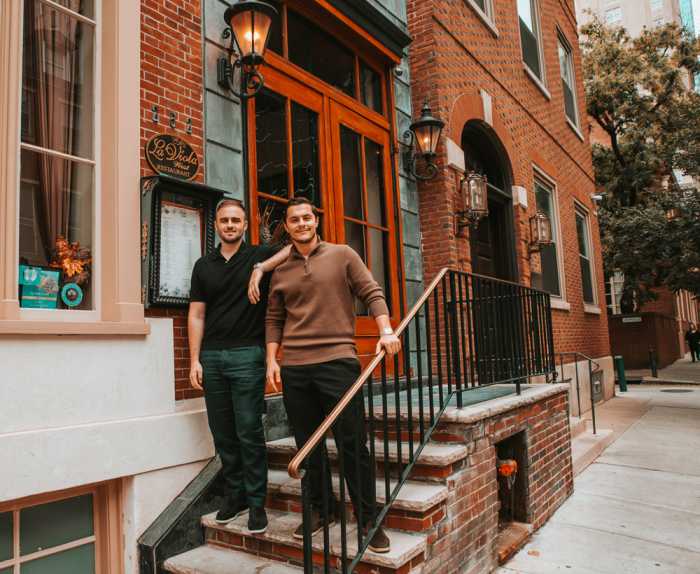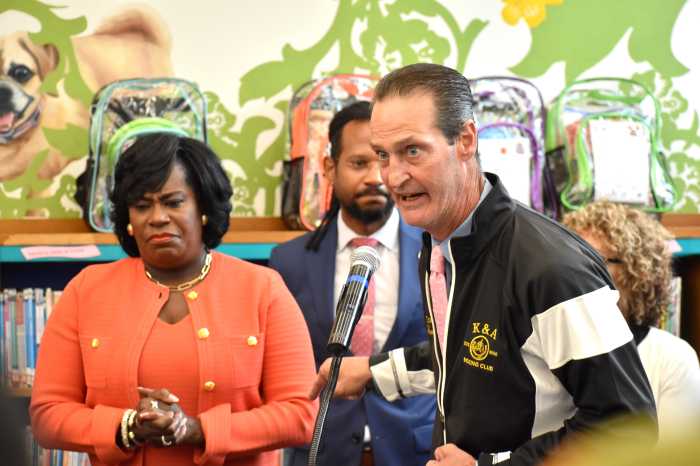National Coming Out Day, recently observed on Oct. 11, is a day of awareness for the LGBTQ community that celebrates and supports lesbian, gay, bisexual and transgender people in coming out. Many individuals that come out and identify as part of the LGBTQ community are children.
The Williams Institute on Sexual Orientation and Gender Identity Law and Public Policy at the UCLA School of Law estimates that there are approximately 3.2 million LGBTQ youth between the ages of 8 and 18.
With this in mind, it’s more important than ever to support your children if they come out. Statistics have shown that LGBTQ youth are more than four times as likely to attempt suicide than their peers, but having at least one accepting adult can reduce that risk by 40 percent.
When your child comes out to you, it can be hard to find the right words, even if you want to be supportive. We sat down with representatives from Live Out Loud and PFLAG —two nonprofits that work to support the LGBTQ+ community and their families—to create a guide for how you can support your LGBTQ children, when they come out and long after.
Why is coming out important for LGBTQ youth?
There have been many conversations, both within and outside of the LGBTQ community, about whether or not coming out is necessary as society continues to move towards becoming more accepting.
Marilena Rocco, manager of educational programs for Live Out Loud, says that while society has become more accepting, there is still progress to be made. Because of this, for many people coming out represents stepping into a supportive and welcoming community.
“That’s why coming out is so important, to feel valid in who you are,” Rocco says. “You are loved for who you are and you’re accepted and celebrated for who you are.”
Martine Bowman, manager of educational programs for Live Out Loud, says there’s value in being able to connect with people with shared identities.
“It’s almost like a built-in family that you gain from being your authentic self,” Bowman says.
It’s also important to remember that coming out isn’t a one time thing.
“People come out every single day, all the time, in order to be themselves and in order to be seen,” says Clark Hamel, educational programs manager for PFLAG. “So coming out for the first time, that is a process that opens that door.”
In many cases, the first people that LGBTQ youth come out to are trusted individuals, like parents.
“It’s an honor to be trusted with that information when it’s first being shared,” Hamel says. “For most LGBTQ people, especially young people, they’re doing it with someone that they trust, that they love, that they want to share this information with in order to open that door to the rest of their life.”
What should I say to my child if they come out to me?
It can be a surprise when your child comes out to you, especially if you don’t know much about the LGBTQ community. But you can be supportive of your LGBTQ children, even if you’re still struggling with acceptance or there’s things you don’t fully understand.
One positive thing to say to your child when they come out to you is thanking them for sharing this information with you.
“It’s an acknowledgement that this was something that was probably difficult for their child to do,” Hamel says. “Saying thank you shows a gratitude that they have your trust in the first place.”
Other good responses include telling your child that you love them, you accept them for who they are and asking questions about how you can support them or if they need anything from you.
Building an environment where your child feels safe to express themselves starts long before they begin thinking and having conversations about their identity.
You can help foster this environment by normalizing the LGBTQ community in your home: watching films that feature LGBTQ representation, going to art exhibitions by LGBTQ artists, having open conversations about the community. Doing this will help foster a space of inclusivity.
“When that conversation does happen, it might not be so much of a surprise,” Bowman says. “It’s just a natural conversation that happens.”
My child just came out to me, and I’m feeling a lot of things that I’m having trouble processing. What should I do?
As a parent, having a child come out to you can bring on an onslaught of emotions– confusion, fear for their safety, maybe even concern in some cases. First and foremost, it’s important to be honest with your emotions and what you’re feeling. This will allow you to process what you’re feeling without negatively affecting your child.
“If there are these emotions of confusion or grief or sadness, a darker emotion than overall acceptance,” Rocco says. “Absolutely go through that grieving process, but not in front of your child.”
One important thing to remember is your child is still the same child that you love.
“You’re just learning something new about them,” Rocco says. “And learning it is an honor that they’re telling you, and it comes from a place of love.”
Parents might be overwhelmed by this new information because they don’t know a lot about the LGBTQ community.
But even if you don’t fully understand, make efforts to affirm your child in a positive way to ensure they’re growing up in an environment where they’re able to thrive and be themselves. It may also be helpful to do research and talk to other people who have children in the LGBTQ community.
“It’s okay if a parent doesn’t fully understand what’s happening right away, but it is so important to do that research, to connect with other people, other LGBTQ+ parents, other parents of LGBTQ+ children,” says Eli Dunn, social work intern for Live Out Loud. “And building that social community can be really helpful.”
How can I make sure my child knows that I still love and accept them after they come out?
Supporting your LGBTQ child doesn’t stop after they come out. It’s important to reaffirm your love and support for them in the months and even years following. This will establish home as a safe place as your child continues to grow and explore their identity.
“Coming out to you, the parent, happens that one first time, but for that young person, they’re continuing to come out to other people in their life and express their identity for the rest of their life,” Hamel says. “So continuing to support verbally and express that affirmation throughout their life is a really, really key thing.”
Reaffirming this support can take on a variety of forms. Do your own research and come to your child with questions to show that you’re interested in them and their identity.
See if there’s a community, like a school GSA (Gender and Sexuality Alliances), that your child can join. Attend family-friendly pride events together. Engaging in things your child is interested in is a great way to support them and reaffirm their identity after they come out.





























